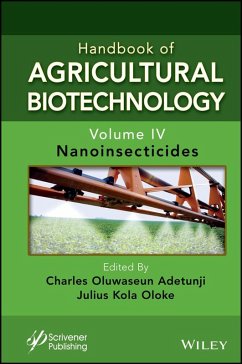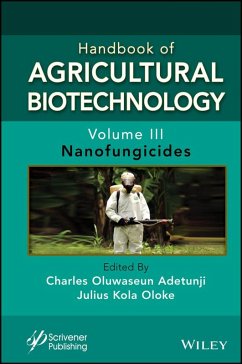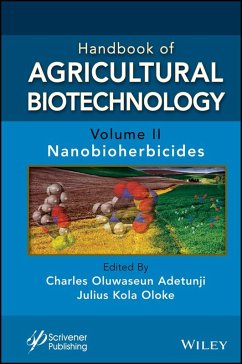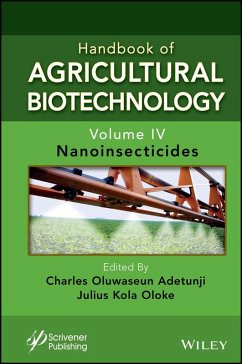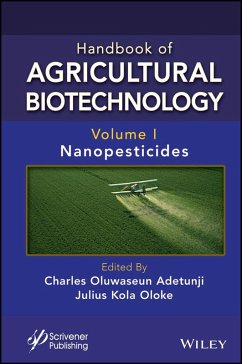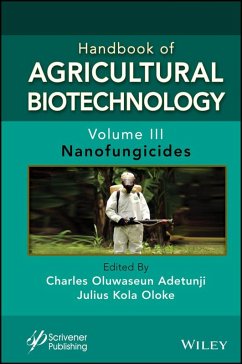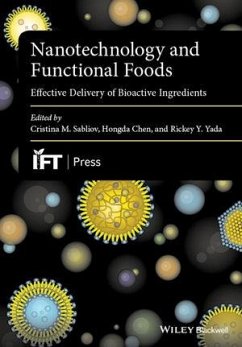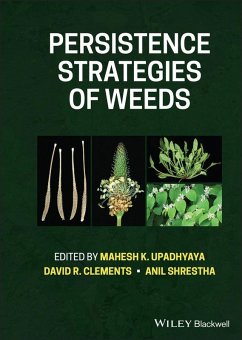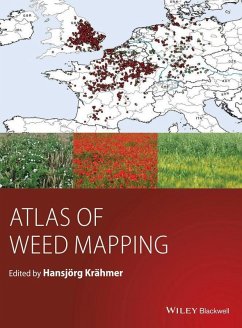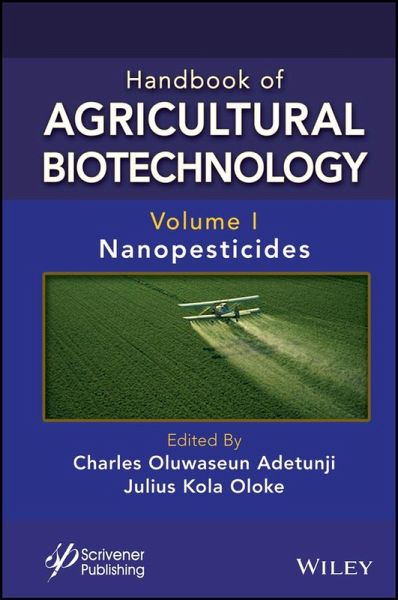
Handbook of Agricultural Biotechnology, Volume 1 (eBook, PDF)
Nanopesticides
Redaktion: Adetunji, Charles Oluwaseun; Oloke, Julius Kola
Versandkostenfrei!
Sofort per Download lieferbar
190,99 €
inkl. MwSt.
Weitere Ausgaben:

PAYBACK Punkte
0 °P sammeln!
Handbook of AGRICULTURAL BIOTECHNOLOGY The book provides detailed information on the application of nanopesticides for the management of numerous agricultural pests and pathogens, as well as to foster an innovative pathway toward future sustainable agriculture and food systems. Biopesticides have been identified as a sustainable and permanent replacement to synthetic chemicals. Their application will go a long way toward preventing major challenges that confront sustainable agriculture, the actualization of global food production and food security, helping to feed an ever-increasing population...
Handbook of AGRICULTURAL BIOTECHNOLOGY The book provides detailed information on the application of nanopesticides for the management of numerous agricultural pests and pathogens, as well as to foster an innovative pathway toward future sustainable agriculture and food systems. Biopesticides have been identified as a sustainable and permanent replacement to synthetic chemicals. Their application will go a long way toward preventing major challenges that confront sustainable agriculture, the actualization of global food production and food security, helping to feed an ever-increasing population that is predicted to increase to nine billion by 2050. An interdisciplinary collaboration among policymakers, private sector, researchers, civil society, farmers, consumers, and environmentalists will foster an innovative pathway toward future sustainable agriculture and food systems that could ensure resilience, food security, and a healthy environment. The book explains the application of some nanobiopesticides as ovicides that could kill eggs of insects and mites, as well as slimicides that could destroy slime-producing microorganisms, such as algae, bacteria, fungi, and slime molds. Other highlights include: a discussion on the application of nanobiopesticides for the rejuvenation of heavily contaminated environments (as well as their role in the mitigation of several abiotic stress); a demonstration of how nanobiopesticides derived from plants could be applied for effective management of pests and diseases in animal husbandry and fishery; and a collection of relevant information on patents, the commercialization of relevant plant-derived nanobiopesticides, and their social economic and industrial relevance. Audience The book is a useful resource for a diverse audience, including industrialists, food industry professionals, agriculturists, agricultural microbiologists, plant pathologists, botanists, microbiologists, biotechnologists, nanotechnologists, microbial biotechnologists, farmers, policymakers, and extension workers.
Dieser Download kann aus rechtlichen Gründen nur mit Rechnungsadresse in A, B, BG, CY, CZ, D, DK, EW, E, FIN, F, GR, HR, H, IRL, I, LT, L, LR, M, NL, PL, P, R, S, SLO, SK ausgeliefert werden.




